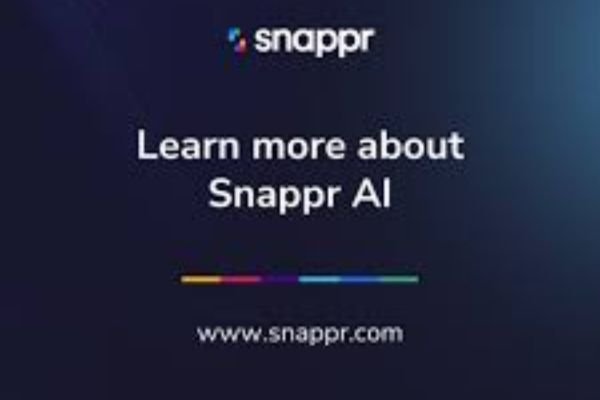The AI app for medical diagnosis is transforming the healthcare industry, enabling fast, accurate, and efficient disease detection. With the advancement of artificial intelligence, medical professionals and patients can now benefit from cutting-edge technology that streamlines diagnosis, reduces human error, and enhances early disease detection. The AI app for medical diagnosis is revolutionizing how doctors, hospitals, and individuals approach healthcare.
In today’s world, artificial intelligence is becoming a crucial component in medical advancements. The AI app for medical diagnosis integrates machine learning, deep learning, and natural language processing to analyze patient data and provide medical insights. This cutting-edge technology is bridging the gap between traditional diagnosis and modern AI-powered solutions. The AI app for medical diagnosis can process large volumes of data, recognize patterns, and assist in diagnosing diseases such as cancer, diabetes, cardiovascular conditions, and infectious diseases.
The AI app for medical diagnosis is designed to improve healthcare efficiency. With AI-powered algorithms, doctors can receive automated diagnoses, allowing them to make informed decisions quickly. The AI app for medical diagnosis also helps reduce waiting times for patients, making healthcare more accessible and efficient. The adoption of AI-driven technology is crucial for improving patient outcomes, reducing costs, and making medical services available to a larger population.
How the AI App for Medical Diagnosis Works
The AI app for medical diagnosis operates using advanced machine learning techniques. It collects and processes patient data, scans for abnormalities, and provides recommendations based on historical medical information. The AI app for medical diagnosis leverages deep learning models trained on vast datasets to detect patterns associated with various diseases.
One of the key features of the AI app for medical diagnosis is its ability to analyze medical images such as X-rays, MRIs, and CT scans. AI-powered systems can detect tumors, fractures, infections, and other abnormalities with high accuracy. The AI app for medical diagnosis can assess symptoms reported by patients, cross-reference them with a medical database, and suggest possible conditions.
Another significant feature of the AI app for medical diagnosis is its natural language processing capabilities. The AI app for medical diagnosis can analyze medical notes, patient histories, and clinical documentation to provide insights that help doctors make more accurate diagnoses. The AI app for medical diagnosis also integrates with wearable devices, collecting real-time health data such as heart rate, blood pressure, and glucose levels to provide continuous monitoring.
Benefits of the AI App for Medical Diagnosis
The AI app for medical diagnosis provides numerous benefits that improve healthcare outcomes and optimize medical practices. The primary advantages of using an AI app for medical diagnosis include:
-
Enhanced Accuracy – The AI app for medical diagnosis reduces human error and provides more precise diagnostic results. AI-driven algorithms analyze patient data and medical images with exceptional accuracy.
-
Faster Diagnosis – The AI app for medical diagnosis processes vast amounts of medical data in seconds, providing quick results and helping doctors make timely decisions.
-
Improved Accessibility – The AI app for medical diagnosis allows patients to receive preliminary diagnoses remotely, making healthcare more accessible in rural and underserved areas.
-
Cost Efficiency – The AI app for medical diagnosis helps reduce healthcare costs by minimizing unnecessary tests and hospital visits. AI-driven technology ensures that only necessary medical procedures are recommended.
-
Early Disease Detection – The AI app for medical diagnosis detects diseases at an early stage, increasing the chances of successful treatment and recovery.
-
Integration with Wearable Devices – The AI app for medical diagnosis can be linked to smartwatches and health-monitoring gadgets to provide real-time updates on a patient’s health.
-
Data-Driven Insights – The AI app for medical diagnosis continuously learns from medical cases, improving its accuracy and diagnostic capabilities over time.
-
Personalized Treatment Plans – The AI app for medical diagnosis provides tailored medical recommendations based on a patient’s medical history, lifestyle, and genetics.
-
Reduced Workload for Doctors – The AI app for medical diagnosis assists healthcare professionals by automating routine tasks, allowing doctors to focus on more complex medical cases.
-
Support for Telemedicine – The AI app for medical diagnosis enhances telehealth services by providing remote diagnostic capabilities, enabling doctors to treat patients virtually.
Applications of the AI App for Medical Diagnosis
The AI app for medical diagnosis is used in various medical fields to enhance healthcare services. AI-driven technology is making a significant impact in:
Oncology
The AI app for medical diagnosis plays a crucial role in cancer detection and treatment planning. AI algorithms analyze biopsy results, medical scans, and genetic data to detect cancerous cells and recommend personalized treatment plans. The AI app for medical diagnosis increases the accuracy of early cancer detection, leading to better survival rates.
Cardiology
In cardiology, the AI app for medical diagnosis helps detect heart diseases, arrhythmias, and abnormalities in heart function. AI-powered electrocardiogram (ECG) analysis enables doctors to diagnose heart conditions more efficiently. The AI app for medical diagnosis provides real-time monitoring and alerts for patients with cardiovascular issues.
Neurology
The AI app for medical diagnosis assists in detecting neurological disorders such as Alzheimer’s disease, Parkinson’s disease, and epilepsy. AI-driven models analyze brain scans and neurological data to identify early signs of neurological conditions, improving treatment options.
Dermatology
In dermatology, the AI app for medical diagnosis identifies skin conditions such as melanoma, eczema, and psoriasis. AI-based skin image analysis enables accurate and early diagnosis, reducing the risks associated with delayed treatment.
Endocrinology
The AI app for medical diagnosis helps manage diabetes by monitoring glucose levels and providing real-time feedback. AI-driven analysis assists in detecting thyroid disorders and hormonal imbalances.
Infectious Disease Detection
The AI app for medical diagnosis plays a vital role in identifying and managing infectious diseases such as COVID-19, tuberculosis, and hepatitis. AI-driven analysis of symptoms, lab tests, and epidemiological data helps in controlling disease outbreaks.
Radiology
The AI app for medical diagnosis enhances radiology by providing accurate interpretations of medical images. AI-powered analysis of X-rays, MRIs, and CT scans helps radiologists diagnose conditions with higher precision.
Mental Health
The AI app for medical diagnosis is also being used in mental health assessments. AI-driven models analyze speech patterns, facial expressions, and behavioral data to detect signs of depression, anxiety, and other mental health disorders.
AI APPS FOR MEDICAL DIAGNOSIS
1. MediAI

🔹 Description: A next-gen AI diagnostic tool designed to analyze symptoms, medical history, and lab results for accurate condition suggestions.
🔹 Key Features:
- Probability-based diagnosis (ranks possible conditions by likelihood).
- EHR integration (works with electronic health records for seamless doctor collaboration).
- Medication interaction alerts (flags dangerous drug combinations).
Link: www.mediai.com
2. Ada Health
🔹 Description: One of the most trusted AI symptom checkers, used by millions globally.
🔹 Key Features:
- Conversational interface (asks intuitive questions like a doctor).
- Personalized reports (saves history for tracking).
- Doctor referrals (connects users to telehealth professionals).
🌐 Link: https://ada.com
3. Buoy Health (Harvard-Backed)
🔹 Description: AI trained on 18,000+ clinical papers to guide users to the right care.
🔹 Key Features:
- Triage recommendations (ER, urgent care, or home care).
- Symptom timeline tracking (monitors progression).
- Multilingual support (Spanish, French, etc.).
🌐 Link: https://www.buoyhealth.com
4. SkinVision (FDA-Cleared for Skin Cancer)

🔹 Description: AI that analyzes skin lesions for melanoma risk via smartphone photos.
🔹 Key Features:
- FDA-cleared algorithm (90%+ accuracy for melanoma).
- Dermatologist network (for follow-up consultations).
- Long-term tracking (monitors mole changes).
🌐 Link: https://www.skinvision.com
5. Zebra Medical Vision (Radiology AI)
🔹 Description: AI that reads X-rays, CTs, and MRIs to flag abnormalities (e.g., tumors, fractures).
🔹 Key Features:
- Detects 30+ conditions (e.g., lung nodules, liver disease).
- Used in 500+ hospitals (prioritizes urgent cases).
🌐 Link: https://www.zebra-med.com
6. K Health (AI + Real Doctors)
🔹 Description: Combines AI diagnostics with instant access to physicians.
🔹 Key Features:
- 98% diagnosis accuracy claim (based on 2B+ data points).
- Prescription services (for UTIs, allergies, etc.).
- Low-cost subscriptions ($29/month for unlimited care).
🌐 Link: https://khealth.com
7. Babylon Health (UK NHS-Approved)

🔹 Description: AI chatbot + video consultations for holistic care.
🔹 Key Features:
- NHS partnership (free for UK residents).
- Mental health support (therapy and CBT).
- Symptom checker (3M+ users monthly).
🌐 Link: https://www.babylonhealth.com
8. Face2Gene (Rare Genetic Disorders)
🔹 Description: AI analyzes facial features to detect 10,000+ genetic syndromes (e.g., Down syndrome).
🔹 Key Features:
- Used by 70%+ geneticists (clinician-focused).
- Global database (supports diverse populations).
🌐 Link: https://www.face2gene.com
9. IDx-DR (FDA-Approved Eye AI)
🔹 Description: Autonomous AI that diagnoses diabetic retinopathy from retinal scans.
🔹 Key Features:
- No doctor needed (fully autonomous diagnosis).
- 90%+ accuracy (validated in clinical trials).
🌐 Link: https://www.eyediagnosis.net
10. FindZebra (Rare Disease Search Engine)

🔹 Description: AI-powered tool for doctors to diagnose ultra-rare conditions.
🔹 Key Features:
- Curated medical literature (focuses on rare diseases).
- Open-source data (used in 100+ countries).
🌐 Link: https://www.findzebra.com
Future of the AI App for Medical Diagnosis
The future of the AI app for medical diagnosis is promising, with continuous advancements improving its accuracy and capabilities. AI-driven healthcare solutions will become more sophisticated, making diagnosis and treatment more efficient. The integration of AI with blockchain technology will enhance data security and patient privacy. The AI app for medical diagnosis will also benefit from 5G connectivity, enabling faster and more reliable remote consultations.
The evolution of the AI app for medical diagnosis will lead to more personalized healthcare experiences, allowing patients to receive tailored treatments based on AI-driven insights. AI-powered chatbots will assist patients in symptom checking and provide recommendations before consulting a doctor. The AI app for medical diagnosis will also improve clinical research by analyzing vast datasets and identifying potential breakthroughs in medical treatments.
The AI app for medical diagnosis is set to redefine healthcare, making medical services more accessible, efficient, and affordable. The widespread adoption of AI in medicine will enhance diagnostic accuracy, improve patient outcomes, and revolutionize the future of healthcare.
Ethical Considerations of the AI App for Medical Diagnosis
The rise of the AI app for medical diagnosis has brought up ethical concerns regarding its implementation in healthcare. While AI-driven diagnosis offers numerous advantages, it is essential to address the ethical challenges surrounding its use.
Data Privacy and Security
One of the major concerns with the AI app for medical diagnosis is the protection of patient data. Since AI apps process large amounts of sensitive medical information, there is a risk of data breaches and unauthorized access. Ensuring strict data encryption and compliance with healthcare privacy laws such as HIPAA (Health Insurance Portability and Accountability Act) is crucial for the AI app for medical diagnosis to gain public trust.
Bias and Fairness in AI Diagnosis
The AI app for medical diagnosis relies on machine learning models trained on historical medical data. If this data contains biases—such as the underrepresentation of certain populations—the AI system may produce inaccurate results for those groups. To ensure fairness, developers must use diverse datasets that represent various demographics. The AI app for medical diagnosis should also undergo regular audits to eliminate biases and improve its accuracy for all users.
Doctor-Patient Relationship
The AI app for medical diagnosis is not meant to replace doctors but to assist them in making better decisions. However, some patients may rely solely on AI-generated diagnoses without consulting a healthcare professional. This could lead to misinterpretations and incorrect treatments. To prevent this, the AI app for medical diagnosis should emphasize that AI-based results are recommendations that must be verified by medical experts.
Legal and Regulatory Challenges
The AI app for medical diagnosis must comply with national and international medical regulations. Since AI-based diagnoses can directly impact patient health, regulatory bodies must ensure these applications meet medical standards. In case of a misdiagnosis, determining liability—whether it falls on the developers, the hospital, or the AI system itself—remains a legal challenge that needs further discussion.
Ethical Use of AI in Medical Decision-Making
The AI app for medical diagnosis raises questions about the ethical use of AI in medical decisions. Should AI have the final say in diagnosing diseases, or should it only serve as an advisory tool? Medical professionals must be trained on how to integrate AI-based recommendations into their clinical decision-making process while maintaining human oversight.
Challenges Facing the AI App for Medical Diagnosis
While the AI app for medical diagnosis holds great promise, it also faces significant challenges that hinder its full adoption in the healthcare sector.
Lack of Standardization
Different AI apps for medical diagnosis are developed by various companies using different algorithms and datasets. Without standardization, there may be inconsistencies in the accuracy and reliability of AI-based diagnoses. Establishing global standards for AI-driven healthcare solutions is essential to ensure consistent medical outcomes.
Limited AI Training Data
The accuracy of the AI app for medical diagnosis depends on the quality and quantity of training data. In some cases, medical datasets may not be sufficient to train AI models effectively. More diverse and comprehensive datasets must be used to improve AI’s diagnostic capabilities.
Integration with Existing Healthcare Systems
The AI app for medical diagnosis must integrate seamlessly with hospitals’ existing electronic health records (EHRs) and other medical software. Many healthcare facilities still rely on traditional systems, making AI adoption a slow process.
Physician and Patient Skepticism
Some doctors and patients are skeptical about the reliability of AI-driven diagnoses. Physicians may be reluctant to trust AI recommendations, while patients may fear that AI could replace human doctors. Education and awareness campaigns are needed to increase confidence in the AI app for medical diagnosis and demonstrate its benefits.
Cost and Implementation Barriers
Developing and implementing the AI app for medical diagnosis requires significant investment in technology and infrastructure. Many hospitals, especially in developing countries, may struggle to afford AI-driven healthcare solutions. Governments and private organizations must collaborate to make AI-powered medical diagnoses more accessible.
Future Innovations in AI-Based Medical Diagnosis
The AI app for medical diagnosis will continue to evolve, introducing new features and capabilities that further enhance healthcare services. Future developments in AI-driven diagnosis include:
Real-Time AI Diagnosis
Advancements in AI technology will enable the AI app for medical diagnosis to provide real-time analysis of patient symptoms and test results. AI will become more responsive and adaptive, improving its ability to detect diseases quickly.
AI-Powered Drug Discovery
The AI app for medical diagnosis will contribute to drug discovery by analyzing medical data to identify potential treatments for various diseases. AI-driven research can accelerate the development of new medications and therapies.
Personalized Medicine and Predictive Analytics
The AI app for medical diagnosis will improve personalized medicine by analyzing genetic and lifestyle data to provide customized treatment plans. Predictive analytics will allow AI to forecast disease progression and suggest preventive measures based on a patient’s health history.
AI in Robotic Surgery
The integration of AI with robotic surgery will enhance precision and reduce human errors during operations. The AI app for medical diagnosis will assist surgeons in planning and executing complex procedures with higher accuracy.
AI in Mental Health Support
AI-driven chatbots and virtual assistants will provide mental health support by analyzing speech patterns, mood variations, and behavioral changes. The AI app for medical diagnosis will play a crucial role in early intervention for mental health conditions.
Conclusion
The AI app for medical diagnosis is revolutionizing the healthcare industry by improving diagnostic accuracy, reducing human error, and increasing accessibility to medical services. This AI-powered technology enhances early disease detection, optimizes treatment plans, and supports healthcare professionals in delivering better patient outcomes.
Despite challenges such as data privacy concerns, biases, and integration issues, the AI app for medical diagnosis continues to advance with innovations in real-time diagnosis, predictive analytics, and AI-powered drug discovery. As AI-driven healthcare solutions become more refined, they will play an increasingly critical role in modern medicine.
The future of the AI app for medical diagnosis holds limitless possibilities. With ongoing research and development, AI will continue to enhance healthcare efficiency, provide personalized treatments, and contribute to global medical advancements. Embracing AI in medical diagnosis will lead to a more efficient, accessible, and patient-centered healthcare system.






